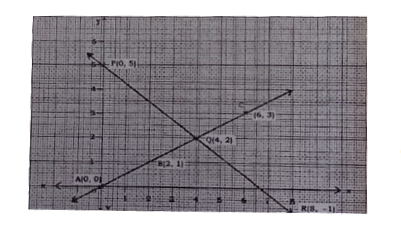Without actually performing the long division state whether the following rational numbers will have a terminating decimal expansion or a non-terminating repeating decimal expansion
Solution in Kannada
The correct Answer is: is a non-terminating repeating decimal expansion
Step by step video, text & image solution for Without actually performing the long division state whether the following rational numbers will have a terminating decimal expansion or a non-terminating repeating decimal expansion 129/(2^(2)5^(7)7^(5)) by Maths experts to help you in doubts & scoring excellent marks in Class 10 exams.
Updated on:21/07/2023Topper's Solved these Questions
- REAL NUMBERBOOK - SUBHASH PUBLICATIONCHAPTER - REAL NUMBEREXERCISE - EXERCISE 8.3
5 Videos
- QUADRATIC EQUATION BOOK - SUBHASH PUBLICATIONCHAPTER - QUADRATIC EQUATION EXERCISE - EXERCISE 10.3
9 Videos
- S.S.L.C ANNUAL EXAMINATION QUESTION PAPER MARCH- 2019 ( WITH ANSWERS )BOOK - SUBHASH PUBLICATIONCHAPTER - S.S.L.C ANNUAL EXAMINATION QUESTION PAPER MARCH- 2019 ( WITH ANSWERS )EXERCISE - II. Answer the following
38 Videos
Similar Questions
Prove that √5 is an irrational number.
View SolutionFind the roots of the following equations :
x−1x=3,x≠0
View SolutionThe given graph represents a pair of linear equations in two varibles . Write how many solutions these pair of equations have .

View SolutionWithout performing division, state whether the following rational numbers will have a terminating decimal form or a non-terminating, repeating decimal form. (vii) 12922.57.75
View SolutionWithout performing division, state whether the following rational numbers will have a terminating decimal form or a non-terminating, repeating decimal form.
12922.57.75
View SolutionWithout actually performing the long division state whether the following rational numbers will have a terminating decimal expansion or a non-terminating repeating decimal expansion
129225775
View SolutionWithout performing division, state whether the following rational numbers will have a terminating decimal form or a non-terminating, repeating decimal form.
12922.57.75
View SolutionWithout actually performing the long division. State whether the rational number 84455 will have terminating decimal expansion on a non-terminating repeating decimal expansion .
View SolutionWithout performing division, state whether the following rational numbers will have a terminating decimal form or a non-terminating, repeating decimal form.
12922.57.75
View SolutionWithout actually performing the long division state whether the following rational numbers will have a terminating decimal expansion or a non-terminating repeating decimal expansion
178
View SolutionWithout actually performing the long division state whether the following rational numbers will have a terminating decimal expansion or a non-terminating repeating decimal expansion
151600
View SolutionWithout actually performing the long division state whether the following rational numbers will have a terminating decimal expansion or a non-terminating repeating decimal expansion
615
View SolutionWithout actually performing the long division, state whether the following rational numbers will have terminating decimal expansion or a non-terminating repeating decimal expansion. Also, find the number of places of decimals after which the decimal expansion terminates. 15600 (ii) 133125 (iii) 232352
View SolutionWithout actually performing the long division, state whether the rational number will have a terminating decimal expansion or a non - terminating repeating decimal expansion
133125
View SolutionWithout actually performing the long division, state whether the rational number will have a terminating decimal expansion or a non - terminating repeating decimal expansion
178
View SolutionWithout actually performing the long division, state whether the rational number will have a terminating decimal expansion or a non - terminating repeating decimal expansion
64455
View Solution
